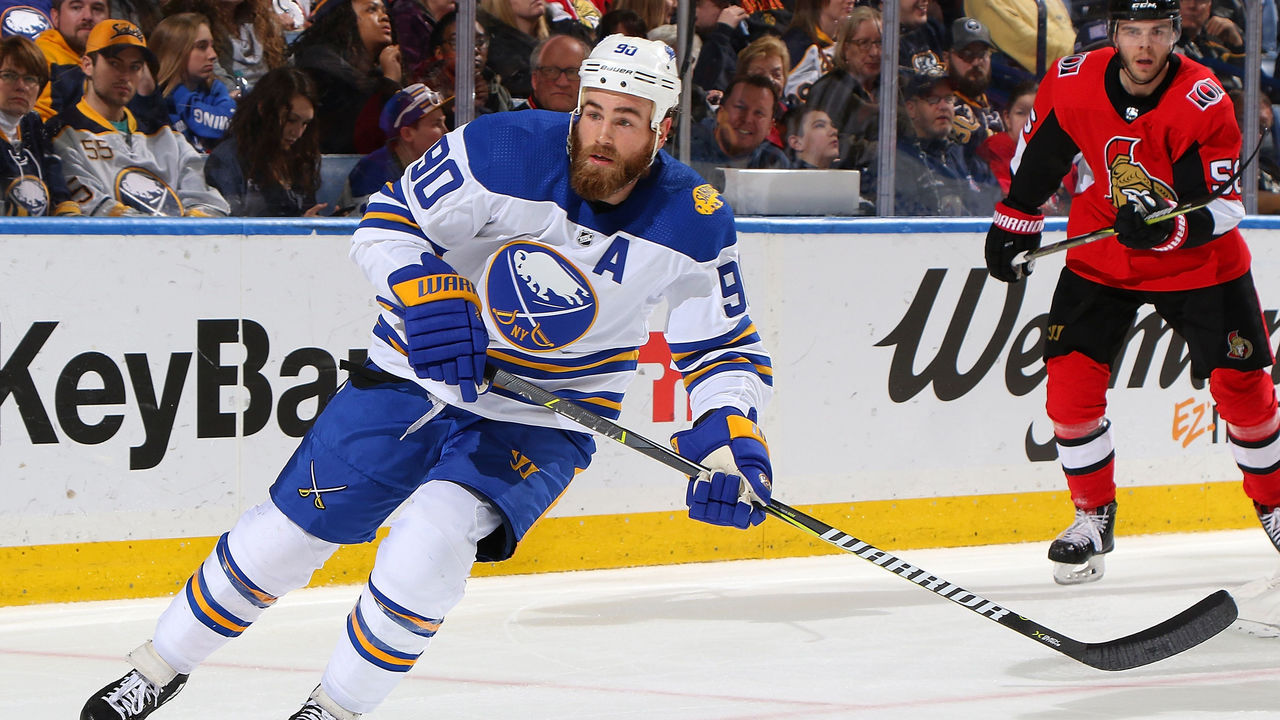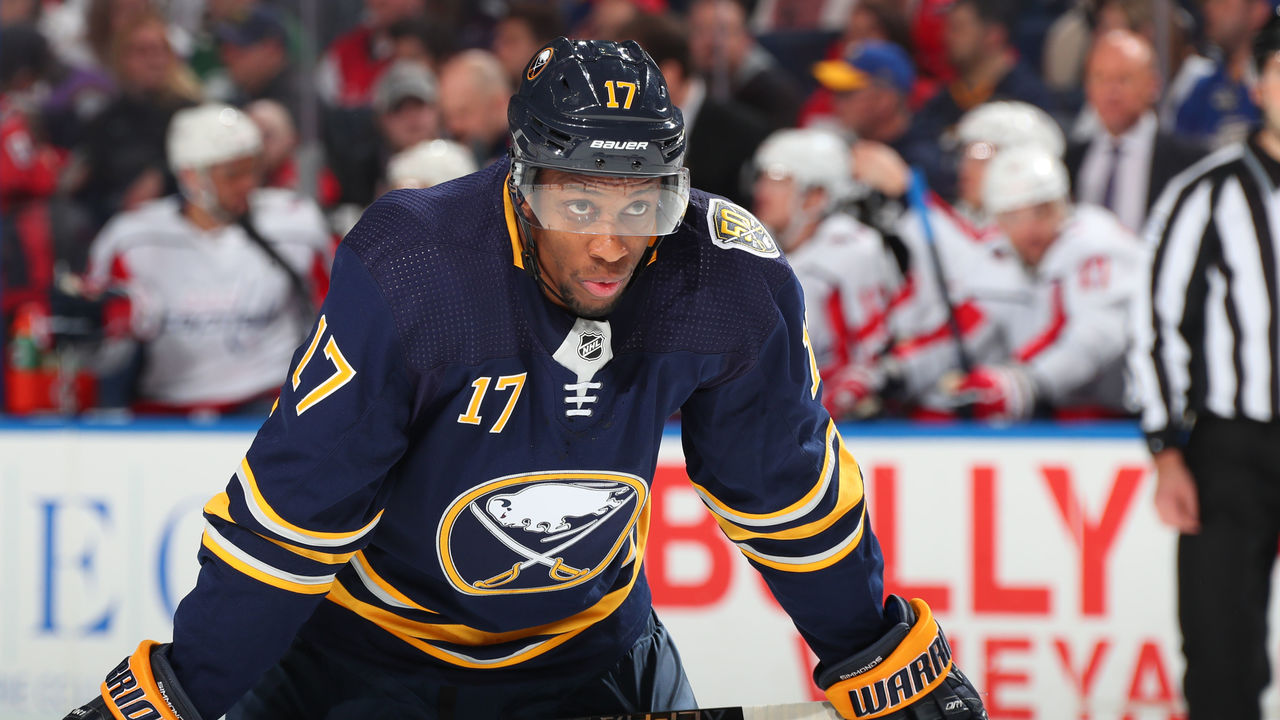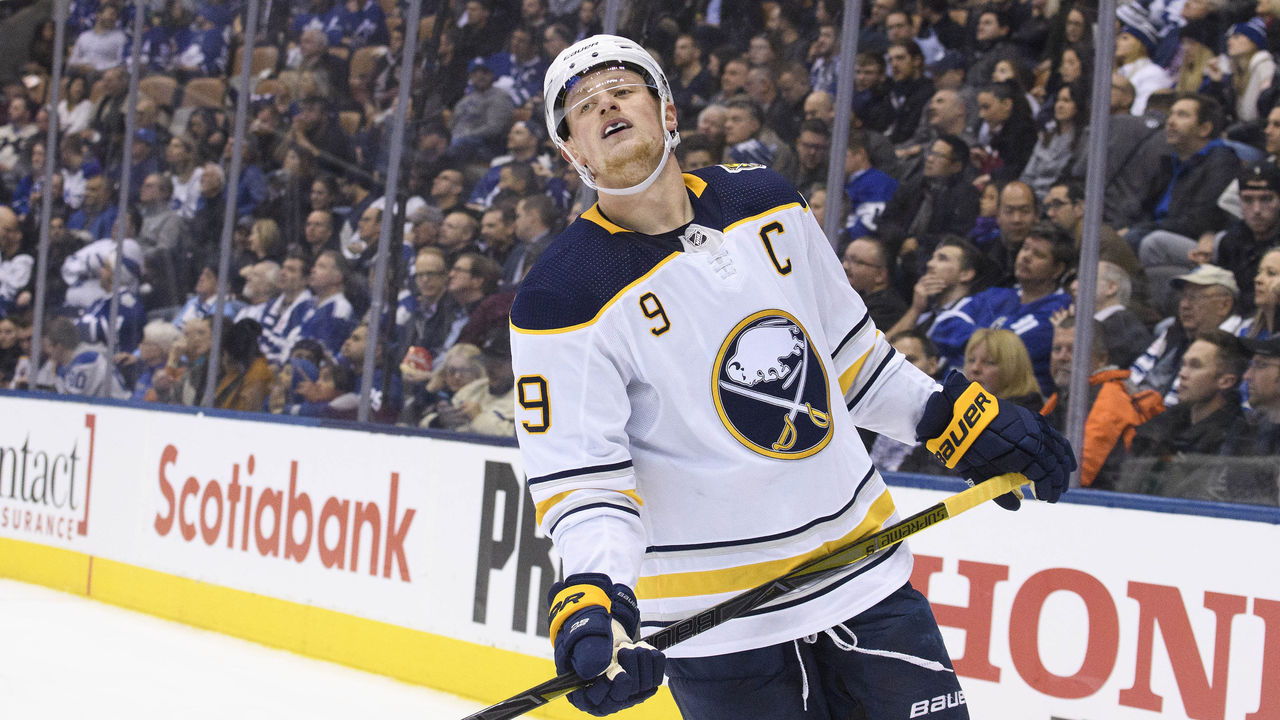Jason Botterill inherited a tough situation with the Buffalo Sabres when he was brought on as general manager in 2017. Though he made a handful of big moves over the last three years, he was simply unable to make the team a top contender in the league quickly enough. The Sabres still haven't made the playoffs since 2011.
As his time with the Sabres came to an end Tuesday, let's take a look at some of the decisions that ultimately led to his dismissal.
Trading Evander Kane to San Jose

Kane showed consistent goal-scoring ability with Buffalo but wasn't an absolute game-changer. During his three seasons with the team from 2015-18, he potted 20, 28, and 20 goals, respectively. In 2017-18, Kane's contract year, Botterill dealt him to the San Jose Sharks at the trade deadline.
Buffalo received a decent haul for Kane, but the return didn't help the team immediately; the Sabres received an AHL-level player, Danny O'Regan, and a 2019 first- and fourth-round pick.
Meanwhile, Kane quickly made an impact in San Jose. After a successful stint with the Sharks to end the season, Kane was rewarded with a seven-year, $49-million extension. In the first season of his new deal, he put together one of the best campaigns of his career, recording 30 goals and 56 points while leading the league in penalty minutes with 153.
Since Buffalo traded him away, Kane's career has been on an upward trajectory. Still only 28 years old, he's the type of secondary scorer the Sabres are dearly missing.
Parting ways with Ryan O'Reilly

The Sabres made a big splash by bringing in O'Reilly during the 2015 offseason in hopes that he would help the franchise turn a corner. Buffalo swiftly signed him to a seven-year extension, and the dynamic two-way center's impact was immediate. He posted some of the best numbers of his career during his three years with the team.
Despite his individual success on the ice, O'Reilly soured on the Sabres rather quickly. After the 2017-18 season, he said that he'd lost his love for the game of hockey multiple times because the Sabres kept on losing. With five years remaining on O'Reilly's contract, Botterill traded him to the St. Louis Blues in the 2018 offseason for a first- and second-round pick, Tage Thompson, Vladimir Sobotka, and Patrik Berglund.
O'Reilly won the Stanley Cup in his first season with the Blues, taking home the Conn Smythe Trophy in the process. He also tied his career high in goals while posting a career-best 77 points. He recently said that winning the Cup and playing in St. Louis "completely revamped" his career.
With a glaring lack of depth down the middle behind Eichel, Botterill was then faced with the tough task of filling O'Reilly's spot in the lineup. A true No. 2 center has yet to emerge in Buffalo.
Jeff Skinner's monster contract

After arriving via a trade with the Carolina Hurricanes, Skinner demonstrated his offensive prowess in his first season with the Sabres, potting a career-best 40 goals in his 63-point 2018-19 campaign. The club seemed to have found a top-line talent worthy of flanking Eichel, but the then-26-year-old was set to become an unrestricted free agent.
The decision to sign Skinner was understandable considering his fit alongside Eichel, but the framework of the deal was questionable from the get-go. The franchise hadn't rostered a 40-goal scorer since 2008-09 and was stuck in a near-decade-long postseason drought, which put more pressure on Botterill to reach an agreement while likely decreasing his negotiating power.
In the end, Botterill inked Skinner to a splashy eight-year, $72-million pact - just $1 million short of Eichel's annual salary - that made him the sixth-highest-paid winger in the league at the time. Skinner recorded 14 goals and a career-low 23 points in 59 games, making his mammoth contract instantly regrettable.
Questionable moves in 2020

With the Sabres trending in the wrong direction, Botterill made a couple of desperation moves in the second half of the season to try to salvage the campaign.
In January, he dealt defenseman Marco Scandella to the Montreal Canadiens for a fourth-round pick and then flipped that fourth-rounder to the Calgary Flames for a declining Michael Frolik. Botterill apparently undervalued Scandella, as the Canadiens traded the rearguard to the St. Louis Blues six weeks later for a 2020 second-round pick and a conditional fourth-rounder in 2021. Meanwhile, the 32-year-old Frolik registered just one goal over 19 games for the Sabres.
With Buffalo six points out of a playoff spot at the trade deadline, Botterill sent a conditional fifth-round pick with the potential to convert into a fourth-rounder to the New Jersey Devils for another aging rental piece in Wayne Simmonds. The club lost its next six games in regulation and Simmonds chipped in with just one assist.
Failing to deliver for Eichel

Signing Jack Eichel for the long haul was an absolute no-brainer, but the minute Botterill inked him to an eight-year, $80-million contract, the clock began to tick. The deal cemented the Sabres' commitment to building a contender around the blue-chip center, but as the team continued to show virtually no improvement, it was a matter of time before Eichel spoke up.
Eichel's frustration appeared to reach its boiling point last week. The Sabres missed the postseason for the fifth straight time since he was drafted second overall, despite this year's format expanding to include 24 clubs, and the captain described his tenure as "a tough past five years" and said he was "fed up with the losing."
Shipping out Kane and O'Reilly - superior forwards compared to any of Eichel's recent teammates except Skinner - for minimal returns didn't exactly send a winning message, and Botterill's attempt to plug-and-play inferior talent around Eichel yielded similarly disappointing results over the previous three campaigns.
Copyright © 2020 Score Media Ventures Inc. All rights reserved. Certain content reproduced under license.